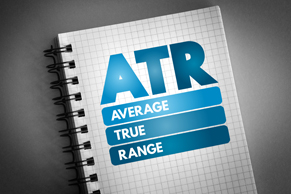Using ATR as a Stop-Loss Tool
Published by Sharekhan Education | May 7, 2022

Using ATR as a Stop-Loss Tool
By Ankit Saxena
As a trader one should always understand the importance of entry, stop loss and target. Often traders only know the entry point and either ignore stop losses or avoid keeping them. SET, i.e. stop, entry and target is an integral part of a trade setup. A trader should avoid making a mistake of ignoring any of these three elements. It has been observed that traders avoid keeping stop losses as they often see it getting triggered, after which the trade starts working in their favour. Needless to say that there are various reasons of a trade getting stopped out and this does not make stop losses unimportant. Here in Sharekhan Education we emphasize the importance of SET and rules based approach which mandatorily includes all of the above three elements.
Using ATR as a Stop-Loss Tool
In trading there are various ways to calculate your stops. In this article we will focus on Average True Range (ATR) for the identification of stops. ATR is the day’s range which is calculated over a period of time, the default is usually 14-period. A stock’s price range is its high minus low during a period. True range includes gaps from the prior period. So, the Average True Range measures the stock’s price volatility (average movement between high and low) over a period of time. The ATR of a stock will differ based on the period you have your chart set for. On a daily chart, ATR indicates the average daily movement between a stock’s high and low. If you have your charts set for 15 minutes, then you will see the average movement for every 15-minute period.
About ATR
ATR is a method designed to account for the intrinsic volatility of the stock to measure its reversal point. For example, assume you are long in a stock that reaches a high of Rs 50 on the back of a strong upward trend. The 14-period ATR for this stock is Rs 2.50. Based on an evaluation of the market strength, you decide to place the stop three times the ATR below the recent highest high. Traders typically use a multiple of 2.5 to 4 times the ATR to set stops. Therefore, we keep a stop at Rs 42.5. This method provides a stop loss based purely on the price and volatility of the stock. As the price rises above Rs 50, the stoploss moves up with the price rise to three times its new ATR below the new high. We adjusted the ATR stop loss method to avoid falling below the previous stop loss.
At Sharekhan Education, our students learn how to keep stops after identifying high quality supply and demand zones. Usually 2% and 10% of daily ATR below the zone is used for intraday and swing trades respectively. We teach traders Odds Enhancers to boost their market success chances alongside zones. For a comprehensive grasp of trading and investing, explore our courses and choose what suits you best!
Happy Learning!




